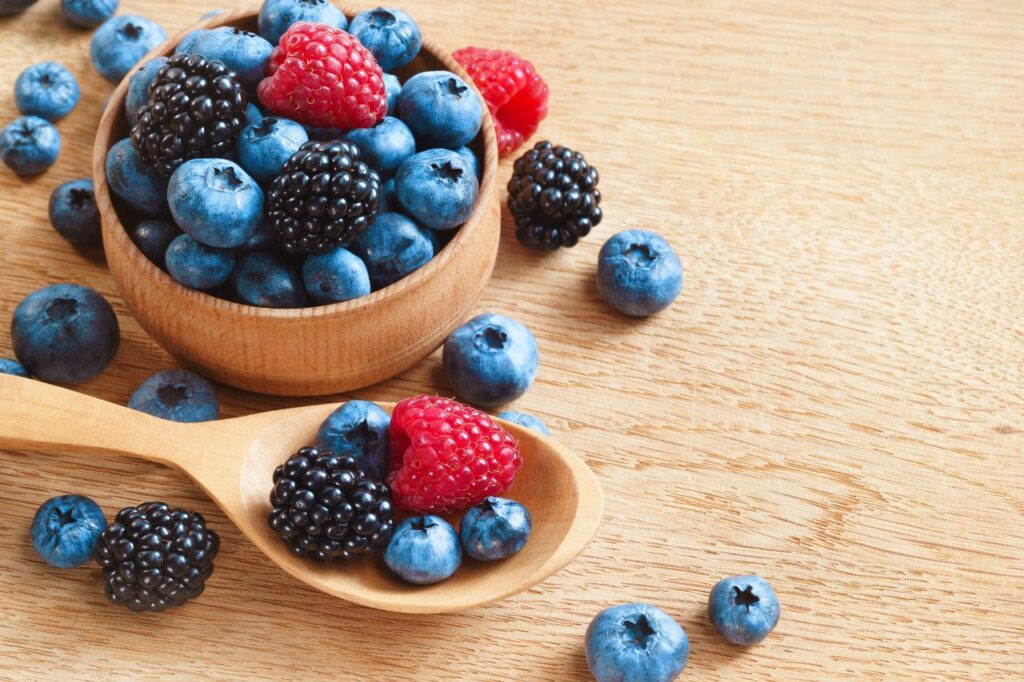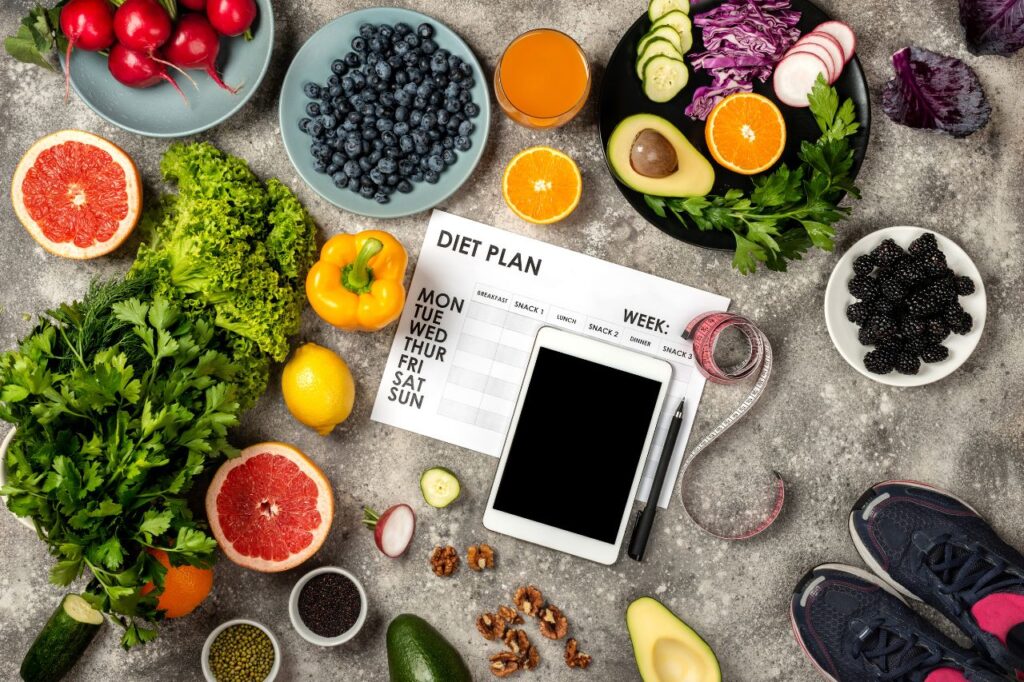Quercetin for Weight Loss: The Natural Game-Changer
Life is a cocktail of compounds, each adding a unique flavor to our health. And speaking of compounds, let’s talk about a certain star: Quercetin. This flavonoid is a staple in various fruits, vegetables, and grains like onions, apples, and kale. This vibrant colored compound not only makes your plate shown in Instagram but is also packing a secret superpower: aiding in weight loss!
Unmasking the Fat: Brown is the New Friend
All fat isn’t created equal. It’s like comparing apples and oranges. We have two types of fat in our bodies: white fat and brown fat. While white fat stores calories, brown fat, our ‘good fat’, burns them to produce heat.
The magic of activating brown fat? It can transform your body into a calorie-burning furnace! Like to know more, please explore our Ultimate Guide on Power of Brown Fat for Weight Loss Naturally.
Quercetin for Weight Loss: Unleashing the Power of Brown Fat
Quercetin is more than just a vibrant molecule gracing our plates; it’s an active player in the weight loss game. But how?
- Brown Adipose Tissue (BAT) Activation: At the heart of this process is our brown fat or Brown Adipose Tissue (BAT). Unlike its infamous counterpart, the white fat which stores excess calories, BAT is known for burning calories. It does this through a process called thermogenesis, where it generates heat by burning fat.
- Quercetin’s Role: Here’s where quercetin shines. It boosts the production of a vital protein known as UCP1 within brown fat cells. UCP1, or uncoupling protein 1, plays a pivotal role in thermogenesis. By increasing UCP1 levels, quercetin effectively cranks up the calorie-burning capacity of our BAT.
- Nonshivering Thermogenesis: Humans have a unique method of heat production called nonshivering thermogenesis. When we’re exposed to cold or consume certain foods, our BAT kicks into overdrive without the need for shivering. Quercetin, as research suggests, may enhance this nonshivering thermogenesis, allowing our bodies to burn more fat without the chills.
In essence, quercetin doesn’t just sit in the background. It’s like a skilled conductor, orchestrating the metabolic processes in our bodies.
While animal studies have shown promising results regarding the role of quercetin in activating brown fat, it’s crucial to understand that more research, especially human studies, is needed. The exact mechanism and benefits of quercetin on human brown fat remain a tantalizing area of exploration.
Quercetin: A Box Full of Health Benefits
Quercetin is the ultimate multitasker. Besides weight loss, it holds an array of health benefits:
- Inflammation-Quencher: Quercetin may reduce inflammation markers, including TNFα and IL-6, in human cells. According to a study flavonoids like Quercetin might have potential in the treatment of inflammation-related diseases as cytokine modulator. [Source]
- Guardian of Brain Function: Quercetin protects our brains from oxidative damage. Research study provided supportive evidence for neuroprotective effects of quercetin. [Source].
- A Calm-Down Cure for Blood Pressure: Quercetin may help relax blood vessels, thereby reducing blood pressure. A research study found significant effect of quercetin supplementation in the reduction of Blood Pressure with dosages greater of >500 mg/day. [Source].
- A Sugar Controller: Animal studies suggest it can assist in stabilizing blood sugar levels by improving insulin resistance.
- An Ageing Combatant: It fights against ageing with its antioxidant power, demonstrated by promising results from animal studies.
These benefits aren’t just standalone – they can boost overall health, indirectly supporting your weight loss journey!
Using Quercetin: A User’s Guide
Getting more quercetin into your diet doesn’t have to be tricky or time-consuming. You can naturally add quercetin to your meals by consuming a variety of fruits, vegetables, and other food and drink sources.
Apples and Berries Smoothie: Start your day right with a refreshing smoothie. Blend together an apple and a handful of mixed berries, such as raspberries and blueberries, along with a cup of your favorite milk or yogurt. Not only is this smoothie packed with quercetin, but it’s also a tasty way to kick off your day.
Kale and Caramelized Onion Salad: If you’re more of a savory person, try a nutritious kale and caramelized onion salad for lunch or dinner. Sauté thinly sliced red onions until they’re sweet and brown, then toss them with chopped kale, a splash of olive oil, and a squeeze of lemon juice. Finish with a sprinkle of capers for that extra kick of quercetin.
Supplements: If you’re aiming for a higher concentration of quercetin, supplements might be the way to go. They are available in various forms, such as pills or capsules. Just remember to opt for a reputable brand that tests its products for purity and potency.
Caution: Although quercetin supplements can be an effective way to increase your quercetin intake, it’s important to note that they’re meant to complement, not replace, a balanced diet. Before you start any new supplement regimen, always consult with your healthcare provider to determine the dosage and usage that’s most suitable for you.
Whatever method you choose to incorporate quercetin into your diet, your body will thank you for the additional support in your health journey.
The Right Dose of Quercetin for Weight Loss
As with everything in life, balance is key. Most studies suggest a dose of 500 to 1000 mg per day split across meals. However, remember this is a general guideline – consult your doctor for a personalized dosage plan.
Safety First: Potential Side Effects
While quercetin is generally safe, overdoing it can lead to headaches, tingling sensations, and mild stomach upset. If any of these or other unusual symptoms show up, stop usage and consult your doctor immediately.
Quercetin for Weight Loss: Backed by Science
There’s no dearth of research supporting quercetin’s benefits. One animal study found quercetin improved obesity-induced inflammation and enhanced its ability to regulate energy metabolism.
This study showed Quercetin might have anti-inflammatory and antioxidant effects on the Brown Fat(BAT) of High Fat Diet-induced obesity. It also advised that quercetin might improve obesity by reducing inflammation and enhancing the intracellular antioxidant system in Brown Adipose Tissue(BAT). [Source].
Another [Study] showed a combination of quercetin and resveratrol induced a white adipose tissue (WAT) browning effect.
While these studies are primarily conducted on animals, their promising results make experts optimistic about the potential benefits of quercetin in humans.
Wrapping It Up
Quercetin for weight loss certainly offers exciting potential. However, it’s crucial to remember there’s no magic pill for shedding those extra pounds.
While the power of quercetin in activating brown fat and aiding weight loss is intriguing, it’s only a piece of the puzzle. A balanced diet, a commitment to regular exercise, and a healthy lifestyle remain the cornerstones of achieving and maintaining your ideal weight.
So, while quercetin might give you a push in the right direction, it’s up to you to walk the path of health and wellness. Keep shining and stay motivated on your journey!
FAQs
Q1: What is Quercetin?
- Quercetin is a flavonoid, a type of plant pigment offering a spectrum of health benefits. Found in various fruits, vegetables, and grains, it’s known for its potent antioxidant and anti-inflammatory properties.
Q2: How does Quercetin support Weight Loss?
- Quercetin aids in weight loss mainly by activating brown adipose tissue, also known as brown fat. This special kind of fat works by burning calories to generate heat, helping to increase your body’s overall metabolic rate.
Q3: What are some health benefits of Quercetin?
- In addition to its weight-loss potential, Quercetin offers a myriad of health benefits. It may help reduce inflammation, enhance brain function, manage blood pressure, regulate blood sugar, and slow down the aging process. Research shows its potential in combating various diseases too, adding to its health-promoting profile.
Q4: How should I consume Quercetin?
- Quercetin can be consumed in several ways. Including foods like apples, onions, and berries in your diet is a great start. For a more concentrated dose, Quercetin supplements are also available. Always consult a healthcare provider before starting any new supplement regimen.
Q5: How much Quercetin should I take daily?
- The dosage of Quercetin can vary based on individual health, age, and other factors. However, typically, a dose of 500 to 1000 mg per day is considered safe. It’s crucial to talk to your doctor to determine the right dosage for you.
Q6: What are the potential side effects of Quercetin?
- Quercetin is generally safe for most people when taken in moderate amounts. However, excessive intake can lead to side effects such as headaches, stomach aches, and tingling sensations. Always stick to the recommended dosage and consult your doctor if you experience any unusual symptoms.
Q7: Any scientific research supports Quercetin for weight loss?
- Several studies support the weight loss benefits of Quercetin. Research has shown its potential in improving obesity-induced inflammation and enhancing the ability to regulate energy metabolism. More studies are needed to understand its full potential, particularly in humans.
Q8: Can Quercetin replace a balanced diet and exercise?
- Quercetin is not a magic bullet for weight loss. It should not be used as a substitute for a balanced diet and regular exercise but can complement these healthy lifestyle choices.
Q9: Can everyone use Quercetin?
- While Quercetin is generally considered safe, certain individuals with specific health conditions should avoid its use. It’s important to consult with a healthcare professional before starting any new supplement.
Q10: Can Quercetin interact with medications?
- Yes, Quercetin can potentially interact with certain medications, affecting their effectiveness. It’s crucial to discuss with your healthcare provider if you’re taking any medications before starting Quercetin.
Q11: Can pregnant or breastfeeding women use Quercetin?
- The safety of Quercetin supplements for pregnant or breastfeeding women isn’t well-researched. As a general rule, it’s better to consult your doctor before starting any new supplement during this period.
Q12: Can Quercetin cause allergic reactions?
- Allergic reactions to Quercetin are rare but not impossible. If you notice symptoms like rashes, itching, swelling, dizziness, or difficulty breathing, stop use immediately and seek medical help.
Q13: Can I take Quercetin with other dietary supplements?
- Quercetin can be taken with other dietary supplements, but it’s essential to ensure there’s no adverse interaction. Always consult a healthcare provider to determine the best supplementation strategy for you.
Q14: Where can I buy Quercetin supplements?
- Quercetin supplements can be bought from health stores or online. However, ensure you’re purchasing from reputable sources to avoid counterfeit or low-quality products.
Q15: Does Quercetin have a taste?
- Quercetin has a somewhat bitter taste which is often masked when included in supplement forms like capsules or when naturally consumed in fruits and vegetables.






